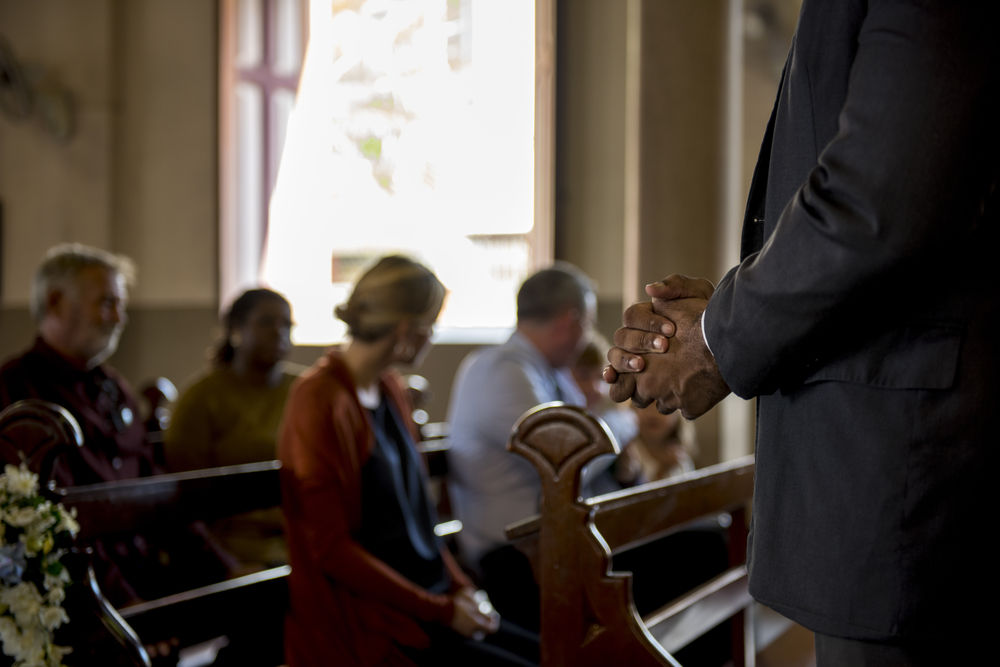Every member of the assembly is a minister of hospitality. Those specifically designated to serve in this ministry regularly remind us of our own call to this God-like spirit. They not only welcome the stranger, they awaken within us our oneness in Christ. They don’t just serve special needs, they serve the health and wholeness of the entire community.
Just as we are all ministers of God’s Word by the way we live our lives, our lectors are specifically designated to proclaim that Word. Ministers of hospitality serve, by their deliberate words and actions, to proclaim God’s eternal welcome and all-embracing love. Their actions direct our actions.
The ministry of hospitality, as we know it today in parish liturgy, is an expansion of the traditional role of the usher that was a common function in every parish prior to the Second Vatican Council. The basic responsibilities of the usher remain the same today. They might include:
> Facilitating seating people;
> Being attentive to the special seating needs of the less abled and the elderly;
> Seating latecomers during the natural breaks in the Mass, when they are less distracting to others;
> Inviting members of the assembly to carry the gifts of bread and wine forward to the altar during the gift procession;
> Maintaining a spirit of order and calm;
> Taking up the collection;
> Facilitating the communion procession;
> Managing any emergencies; and
> Offering the parish bulletin to people as they exit the church building.
With our ongoing reform of the liturgy, the ministry of hospitality now includes the role of greeter, whose responsibilities might include:
> Greeting people as they enter the church building with a smile and words of welcome;
> Shaking hands with people, as the situation permits;
> Greeting people by name, when possible; and
> Generating a spirit of welcome and belonging for all members.
In some parishes, ushers take on this additional role of greeter. In other parishes, greeters have a distinct role from that of ushers. Whether they are distinct groups of people in a parish or one group that performs both roles, they are all ministers of hospitality.
This ministry is open to people of all age groups: children, youth, young adults, families, retired members, etc. When forming a hospitality ministry or recruiting new members to serve, think about inviting families and people from all different age and ethnic groups to be the face of welcome in your parish.
Ushers and greeters are often the first point of contact for people when they enter the church building for Mass. That first greeting (or non-greeting) sets the tone for each individual person. It can either provide a sense of belonging and connection, or it can lead to indifference, insignificance or a feeling of isolation and detachment, none of which foster unity or reflect our oneness in the body of Christ. The minister of hospitality has a very serious role to play at the liturgy. It may seem like a simple task, but that doesn’t mean it is easy or unnecessary!
The temptation when serving in any liturgical ministry is to come to the liturgy unprepared spiritually, which leaves us operating in our ministry just out of its functional purpose within the ritual. We all need to come to the liturgy from intentional prayer and preparation. As servant leaders in the community, we need to be mirrors of the body of Christ to others. Our service reflects back the oneness we share, and our responsibility as the body of Christ in the world today.
Therefore, ministers of hospitality, as with all liturgical ministers, need effective training to be open and aware of the importance and dignity of their role. All liturgical ministers need a working knowledge of the liturgy and the principles of current eucharistic theology. All those who participate in any of the liturgical ministries need annual ongoing formation and renewal so that they can maintain the God-given spirit of their ministry, and not become reflections of their functional role only.
When recruiting new ministers or joining the ministry of hospitality yourself, consider the following qualities. A minister of hospitality should have:
> An ability to make eye contact, smile and talk to strangers;
> Basic understanding of the liturgy;
> A love for one’s parish community;
> A prayerful and calming presence;
> An ability to see the face of Christ in every person; and
> An awareness of how to dress appropriately for the liturgy.
And, finally, remember: We cannot give what we do not have! Each minister needs to spend time in prayer and reflection before coming to the church to serve. Our hearts and minds need to be filled with the presence of God, so that we can offer that loving spirit to others.

